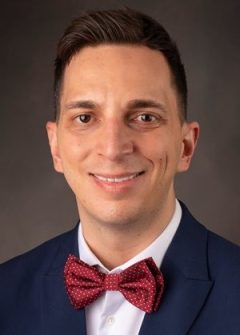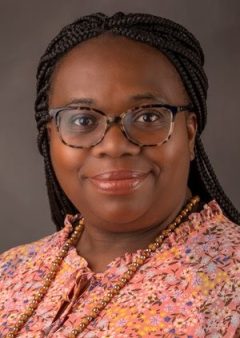Through practical strategies emphasizing recognition of humanity, collaborative learning and advocacy for unique needs, Nermin Vehabovic and Cherrel Miller Dyce offer guidance to educators on creating supportive spaces for individuals from refugee backgrounds in their recent paper published in Midwest Journal of Education.
Nermin Vehabovic, assistant professor of education, and Cherrel Miller Dyce, associate professor and executive director of diversity, equity and inclusion for the Dr. Jo Watts Williams School of Education, published the article, titled, “Don’t Forget About Us: Inclusive Practices for Educators of Refugee Background Children, Youth, and Families,” in the peer-reviewed Midwest Journal of Education.

In their collaboration with pre-service and in-service teachers, along with their roles as faculty members and teacher educators, Vehabovic and Miller Dyce emphasize the crucial role of social justice in creating connections between schools and students’ communities. From a broader perspective on educational inclusivity for all students, this article moves theory into practice by illuminating three strategies for supporting students from refugee backgrounds in K-12 schools and districts, emphasizing the importance of recognizing their humanity, learning collaboratively with them and their communities, and advocating for their unique needs while maintaining the commitment to providing love and care in educational and community spaces.
The article abstract reads as follows:

“Moving theory into practice, in this paper we explore the pivotal role of social justice in fostering connections between schools and students’ communities. Emphasizing access, equity, and the dismantling of power dynamics, privilege, and discrimination, we underscore the need for inclusive practices among educators of refugee-background children, youth, and families, such as recognizing their humanity, collaborative learning with communities, and advocating for unique needs. We also highlight the importance of maintaining a commitment to love and care in educational and community spaces. Subsequently, this article offers insights for teachers, administrators, and district-level leaders to create and sustain supportive spaces for people from refugee backgrounds.


